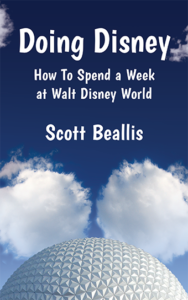I haven’t been posting much here, but I couldn’t get through the entire month of March without at least one entry, so here it is.
I recently read a couple of non-fiction books. First was The Undoing Project by Michael Lewis. Yeah, it’s the same guy who wrote The Big Short and Moneyball. I can’t say I liked this one as much as I liked some of his other works. It just didn’t seem as focused. In the end, I wasn’t sure if it was supposed to be about the people he was talking about or about the ideas they came up with, or about the impact of those ideas on our everyday lives. Maybe it was about all of those, but in the past he’s focused more on one recognizable goal and used the other parts to illuminate that goal. It was an interesting read, but just not as good as some of his others.
The other non-fiction book I finished was Outliers by Malcolm Gladwell. Now this one made me think. It’s about success and the role that chance plays in that success. It doesn’t say that success can come without hard work and a willingness to correct things that might be causing you to veer away from a successful outcome, but it does say that there is a lot of “right place at the right time” involved in peoples’ success. For example, did you know that an inordinate amount of professional hockey players (at least in Canada) have birthdays in January, February and March? Why would that be? It can’t be just a random thing. It turns out that many of the youth hockey programs have age-cutoff dates of January 1st. So because of that, kids born in those months are simply older and bigger than other athletes at a period of time in their young lives when a few months can make a large difference physically. So these are the kids who are a little bit more physically developed and they stand out, so they get selected for all-star teams and traveling teams and such, and get better coaching and more practice time. And it keeps going until they actually ARE the best players.
I found that take to ring true, even in writing. Sure, there are things you can control. You can control the quality of your own writing and storytelling. You can work to get better. You can edit and proofread and take advice and criticism from your “team.” You can work on your covers and on your blurbs. You can market your works in such a way to increase their visibility, and when something doesn’t work, you can try something else that might work better.
But you can’t write what you can’t write. If you write in a relatively unpopular genre, like I do (horror), you might just be stuck. Conversely, if you write in a genre that tends to have voracious readers who stay in that genre, like romance, you might do a lot better. Or psychological thrillers, or erotica. Apparently those sell better in e-books. If you’re just getting started today, you may find yourself with more of an uphill climb than if you had started right after the Kindle came out and e-books really became a thing. Or if your stories just don’t strike a chord with readers, you are not positioned to take advantage of the market trends that are out there.
Luck might just be described as being in the right place at the right time. It might be that you published your book on a day that, for whatever reason, it became more visible and grabbed the attention of more people so that it became ranked highly and thus became more visible. It might be described as already being positioned to take advantage of the opportunities that present themselves.
Even Joe Konrath admits that “luck” played a part in his own phenomenal success as an indie author. Here’s just one post of many he has dealing with the subject. (The comments are great, being from respected authors like Blake Crouch, Jude Hardin and Mark Terry, to name a few.)
Anyway, I got a bit sidetracked.
I’m currently reading Creativity, Inc.: Overcoming the Unseen Forces That Stand In the Way of True Inspiration by Ed Catmull, president of Pixar Animation and Disney Animation, with Amy Wallace.
I’m also reading some fiction, but I think I’ll make another post (with links to what I’ve read) soon. Before the end of March, for sure!
*****
 Links for purchase follow for Amazon:
Links for purchase follow for Amazon: